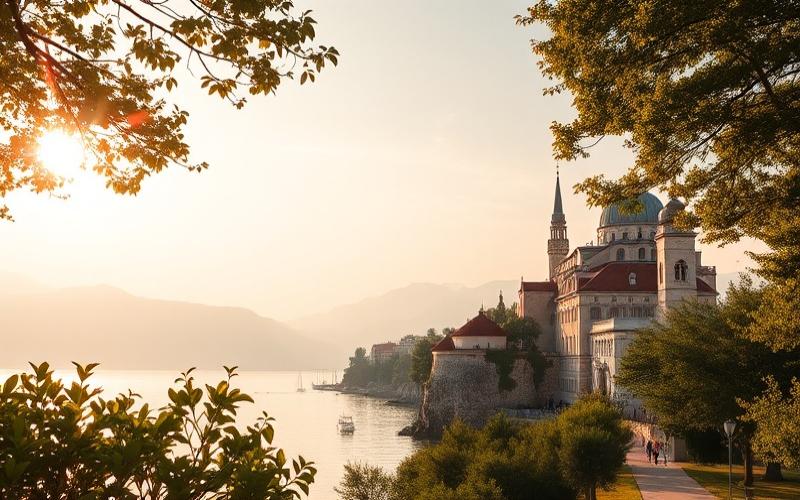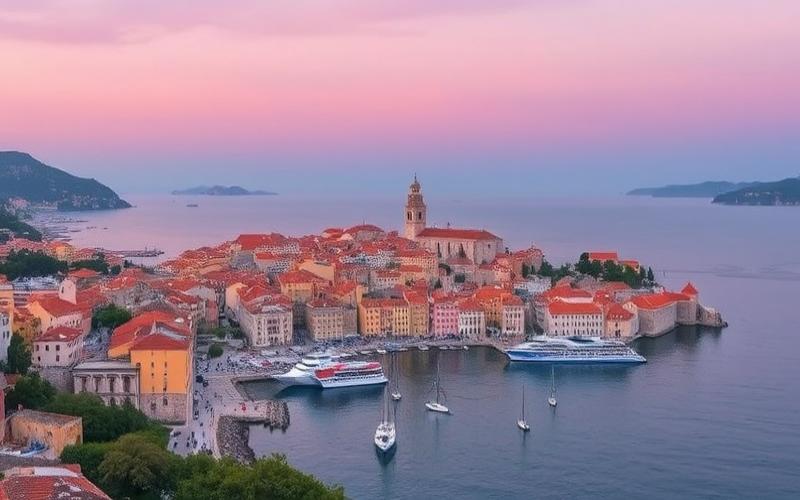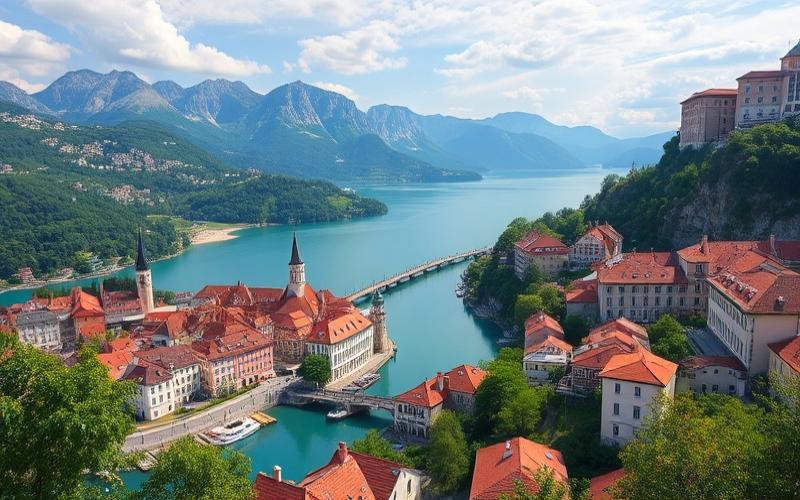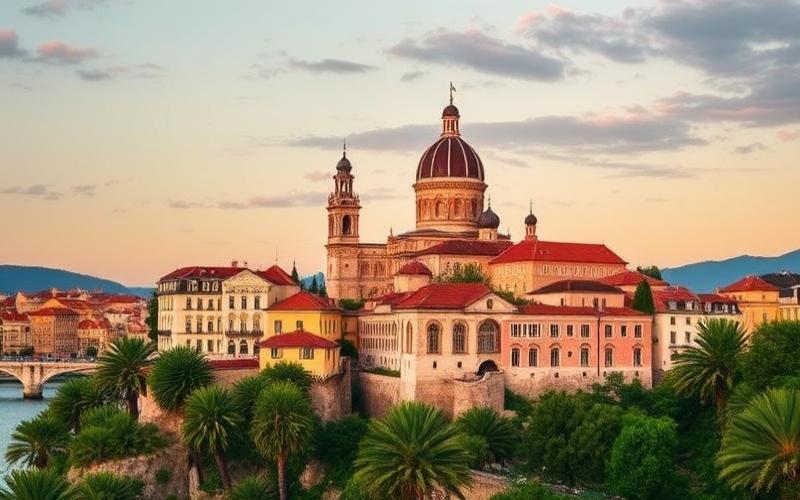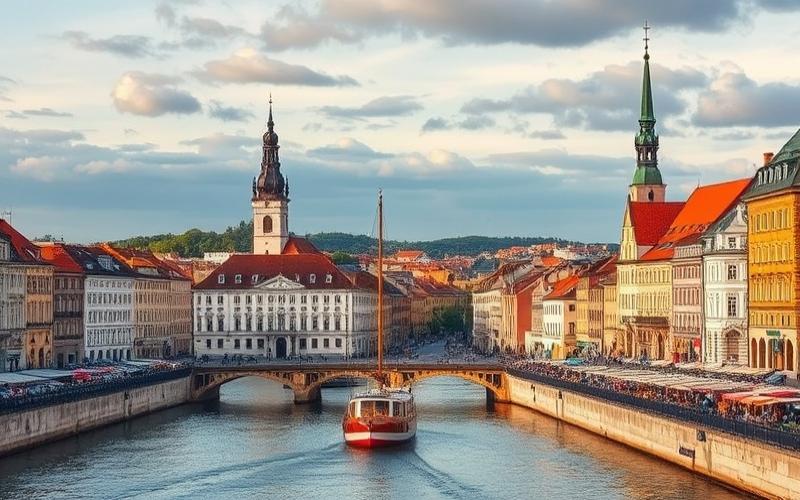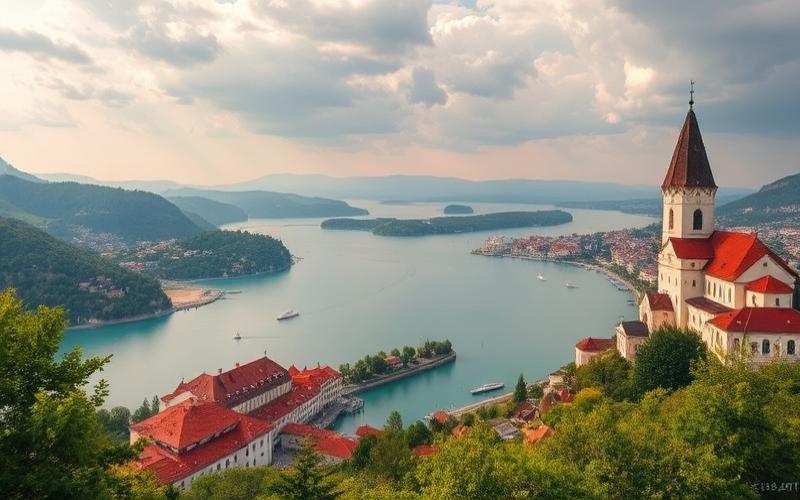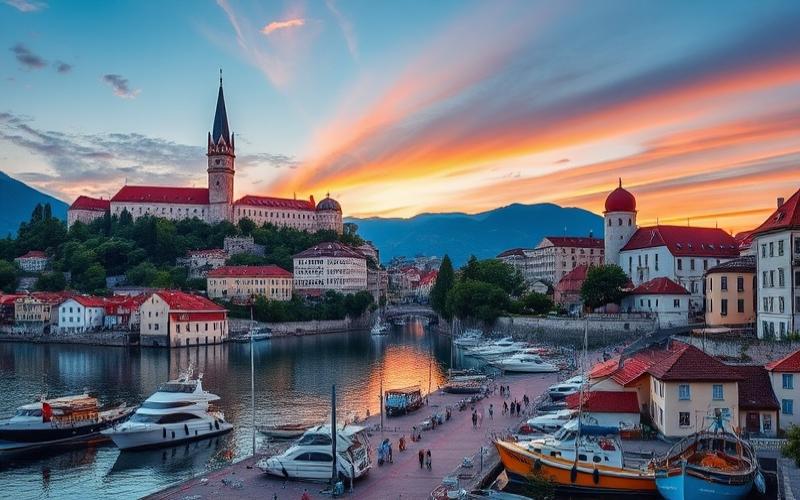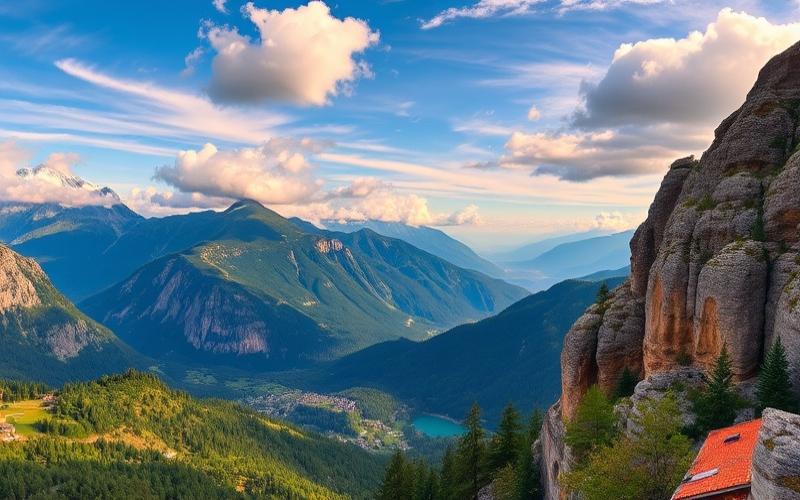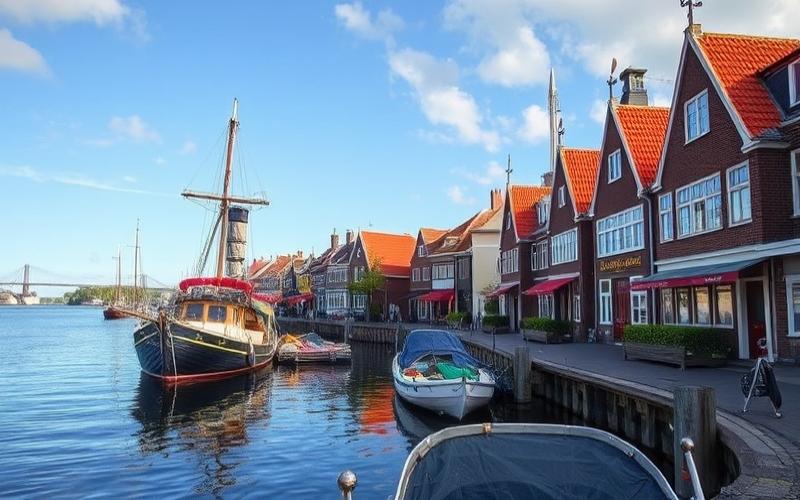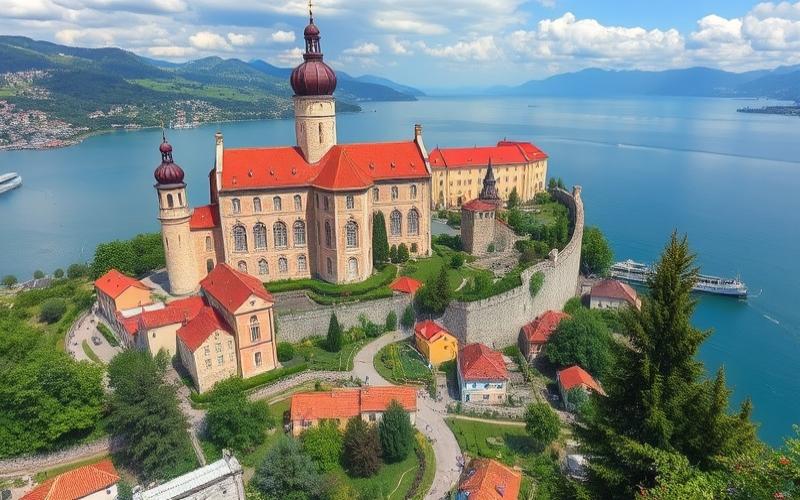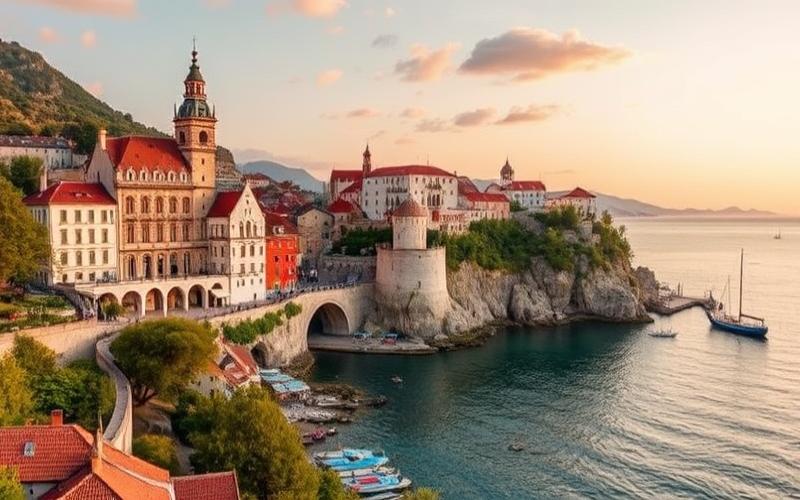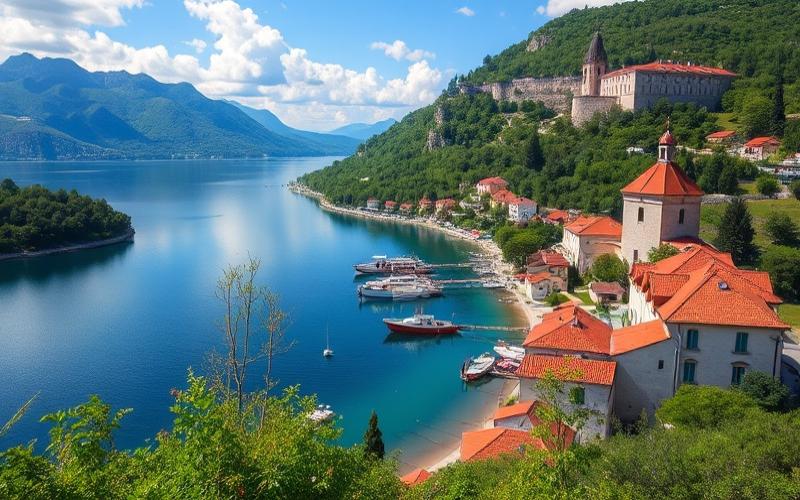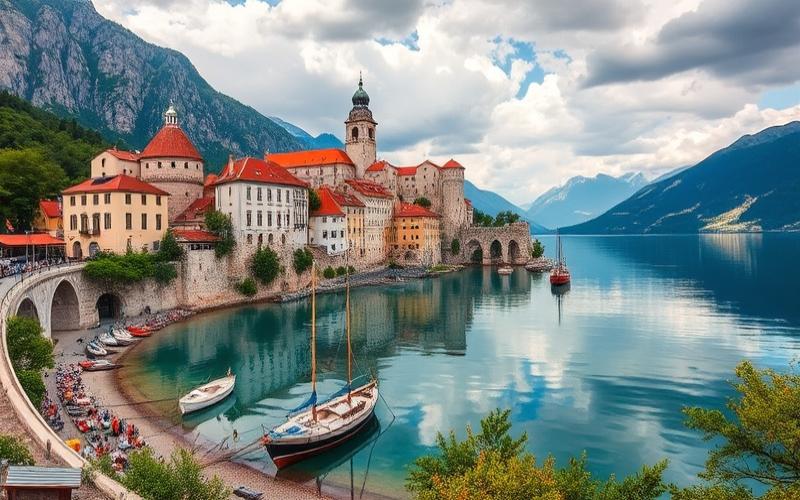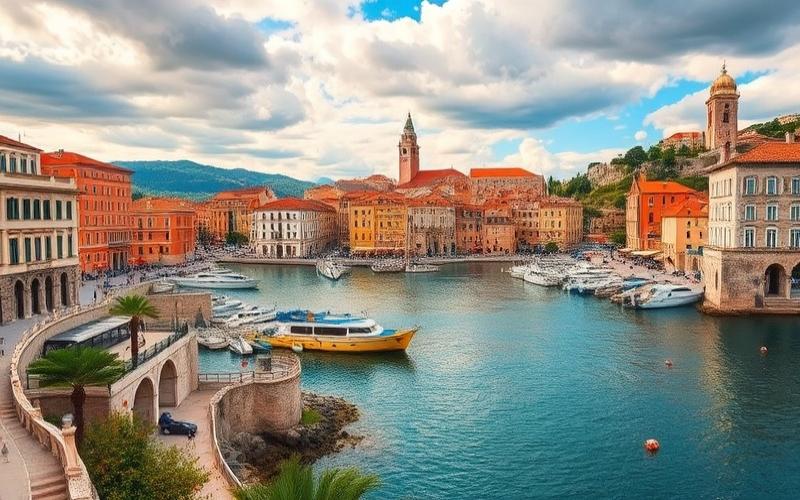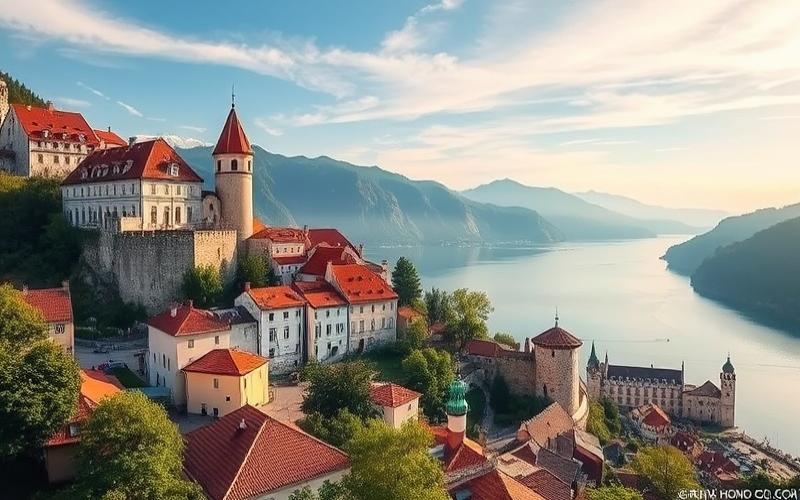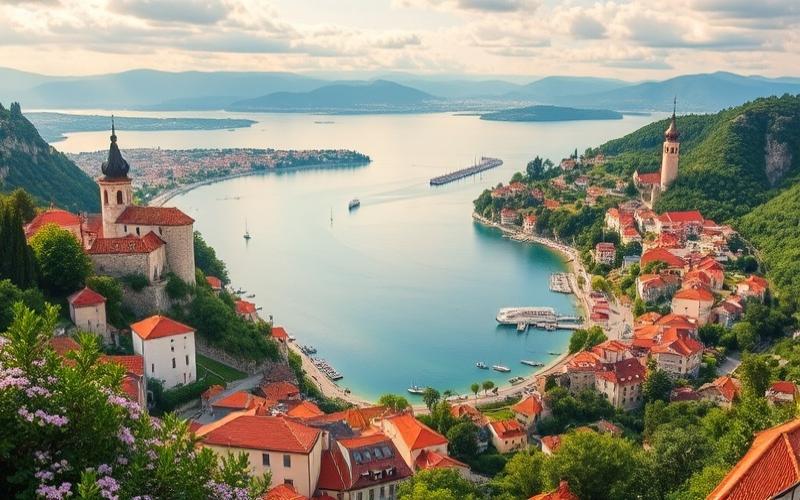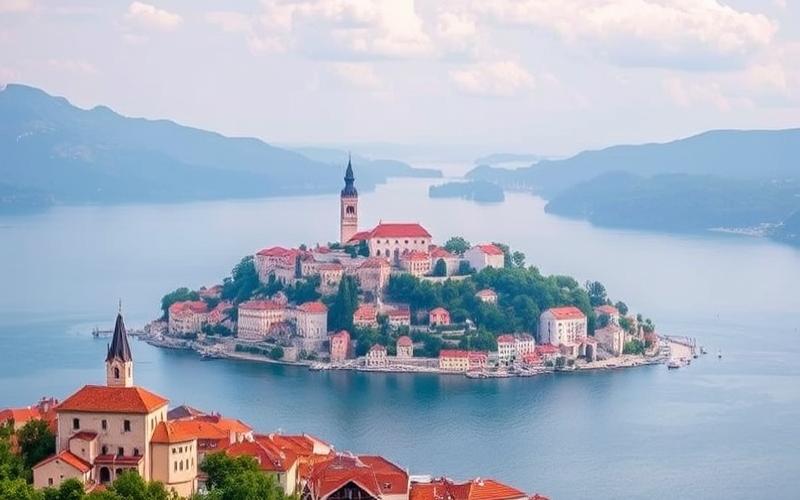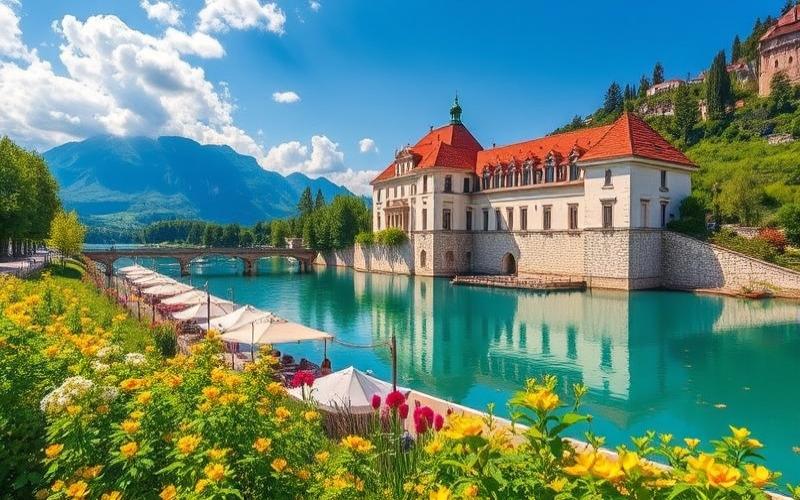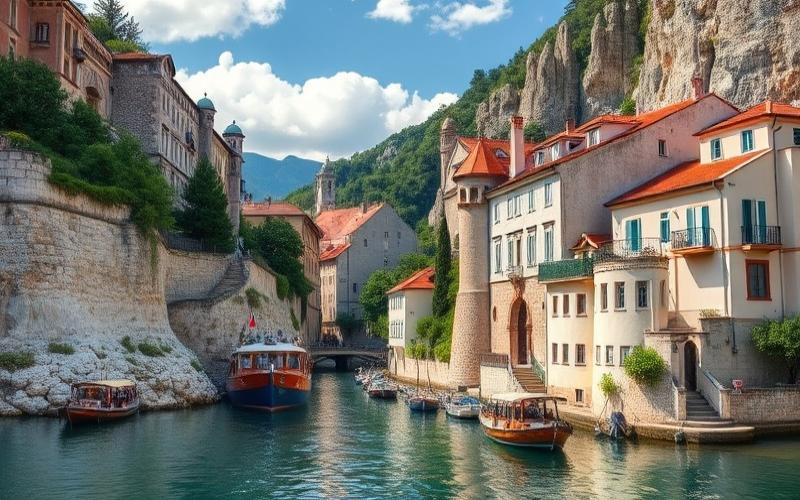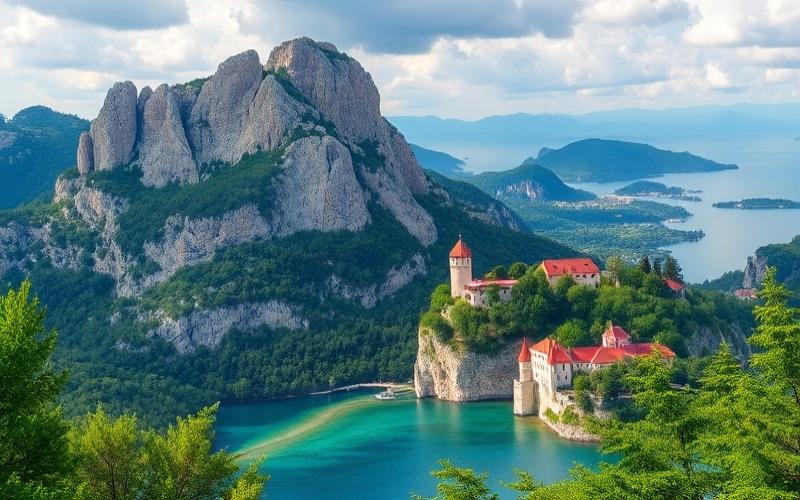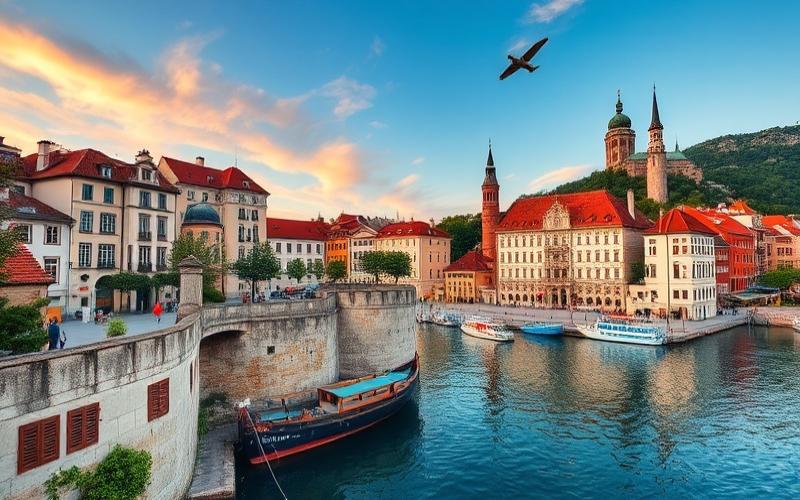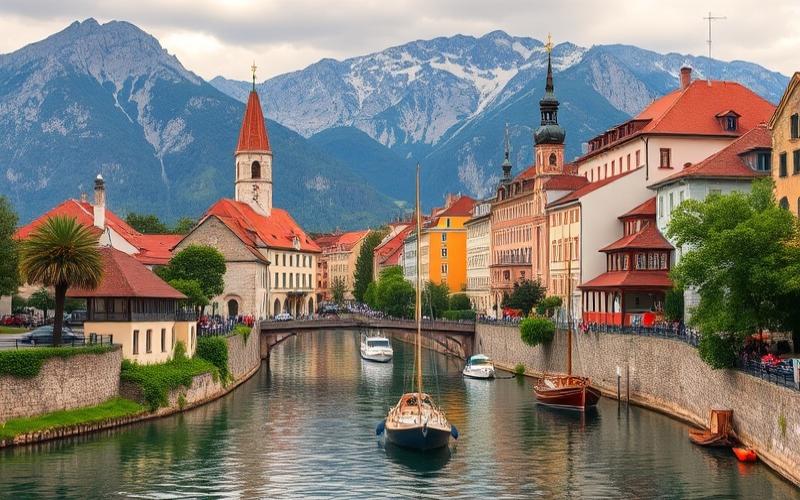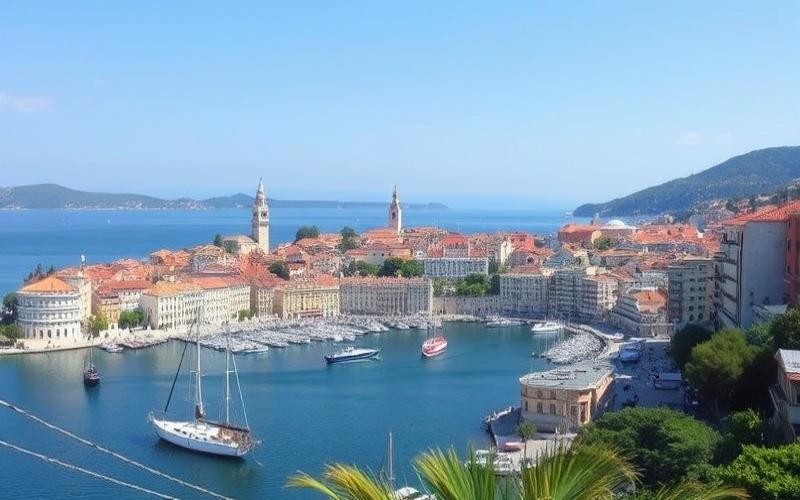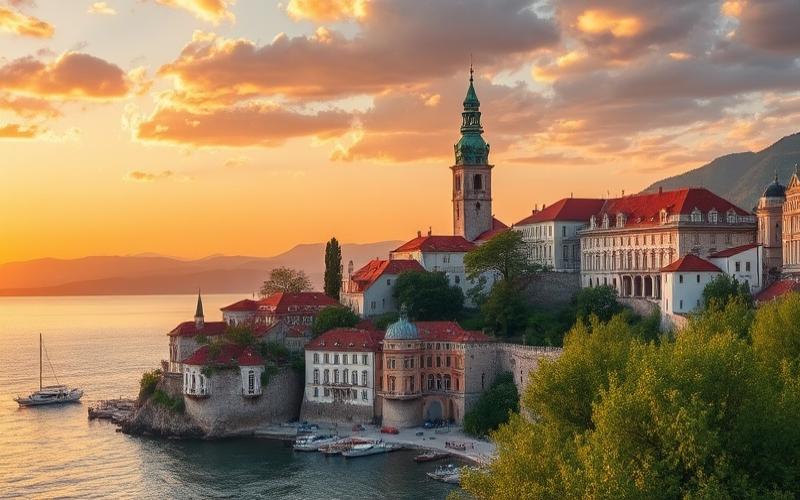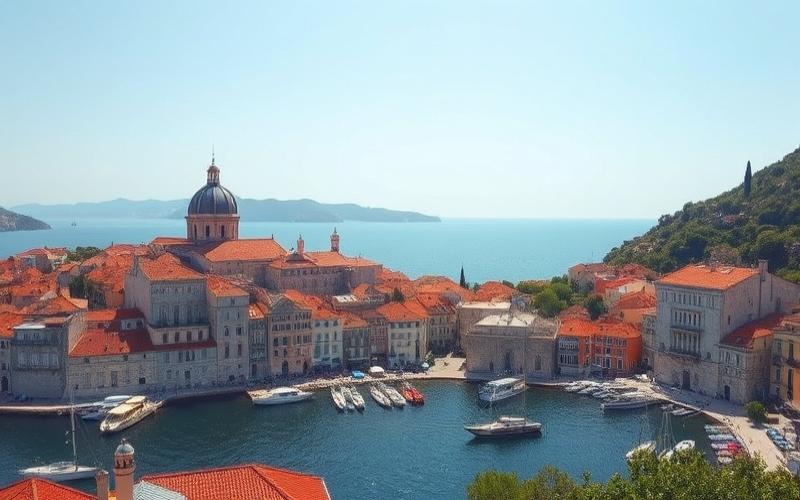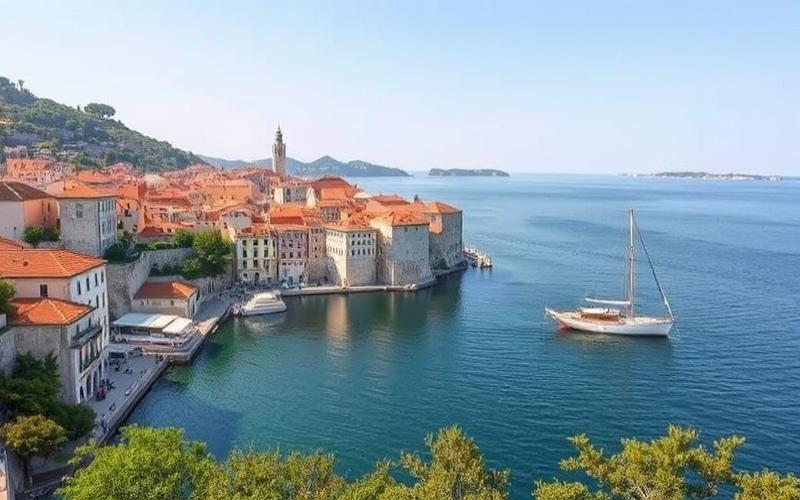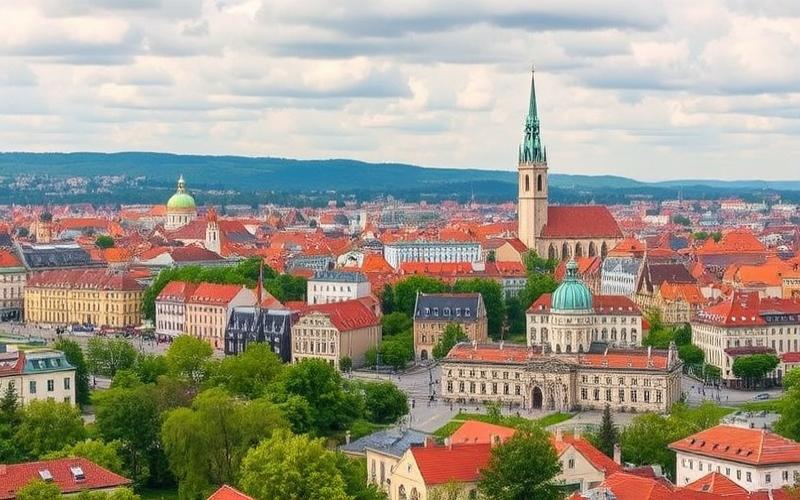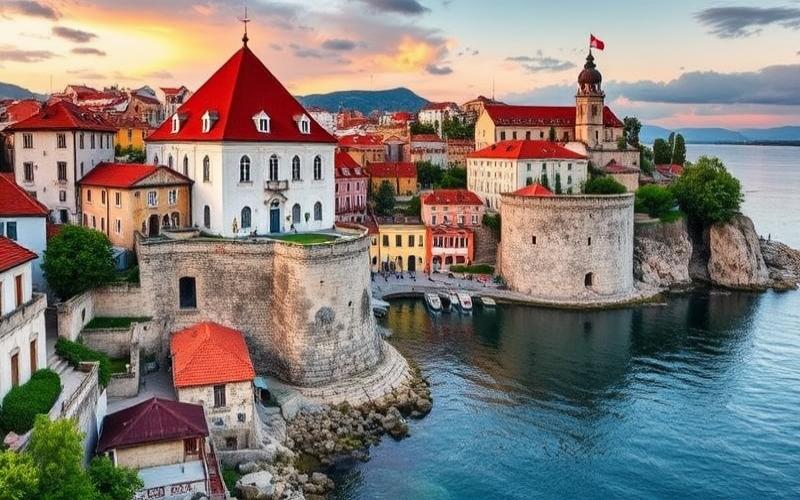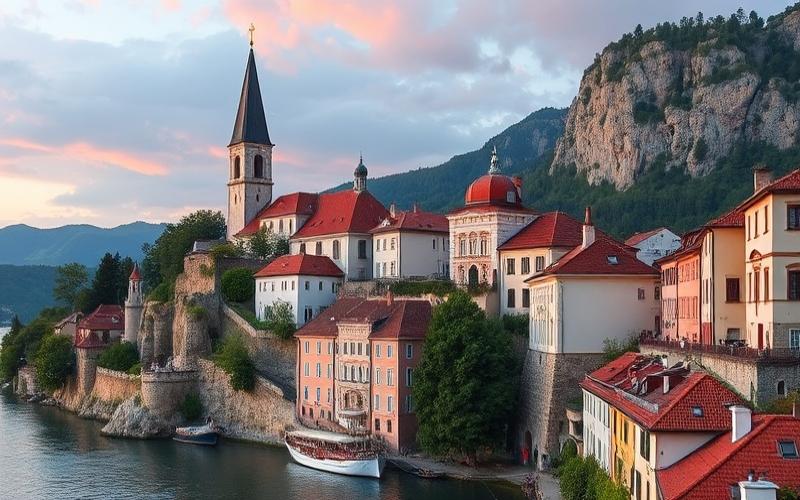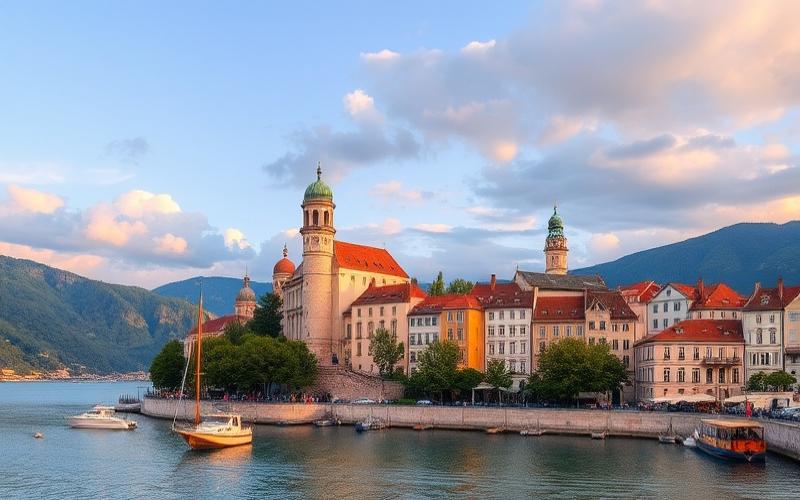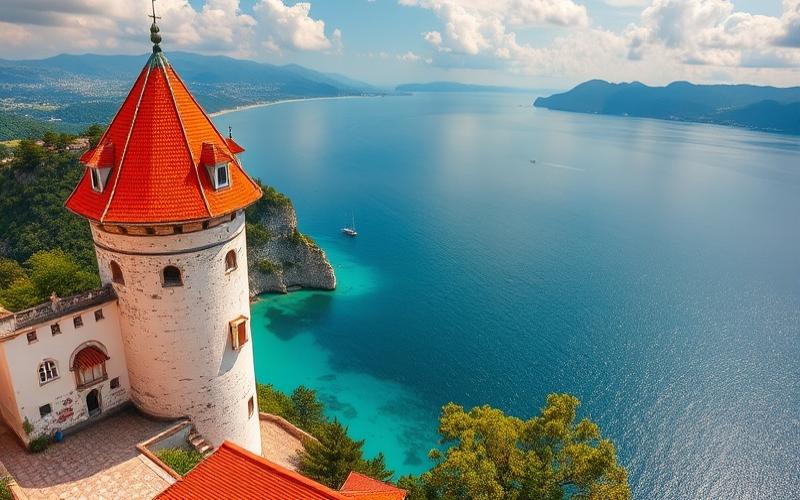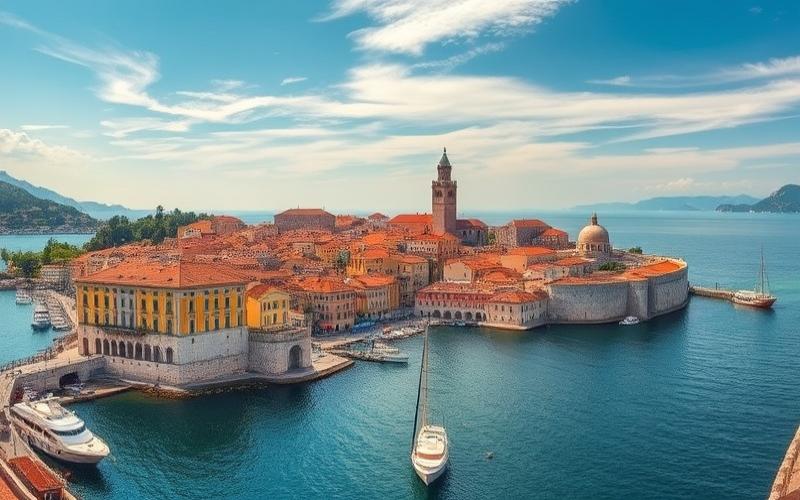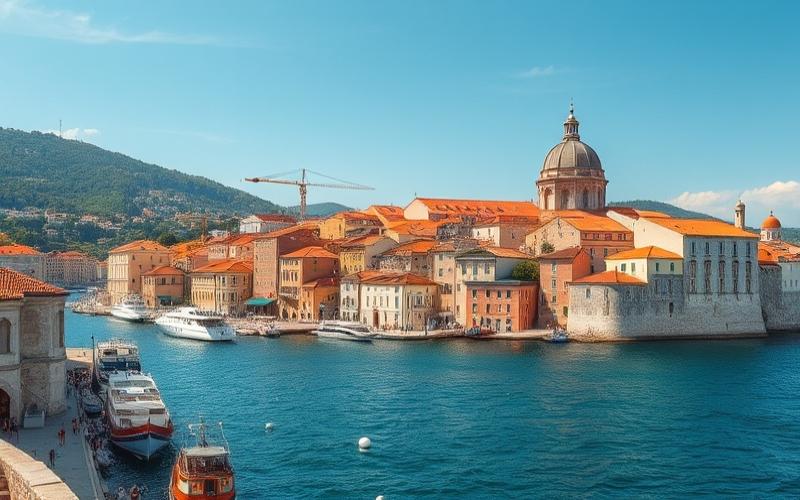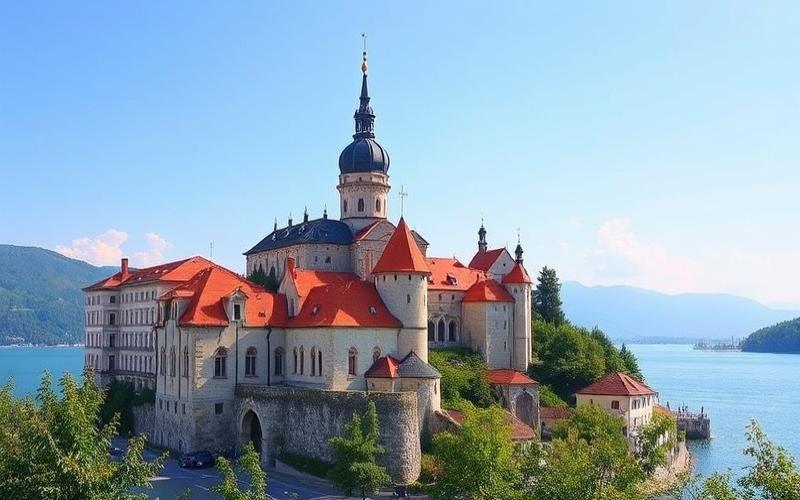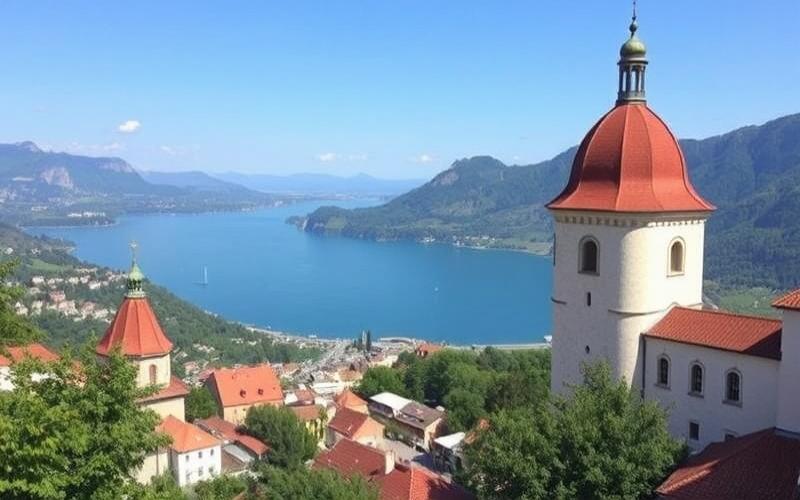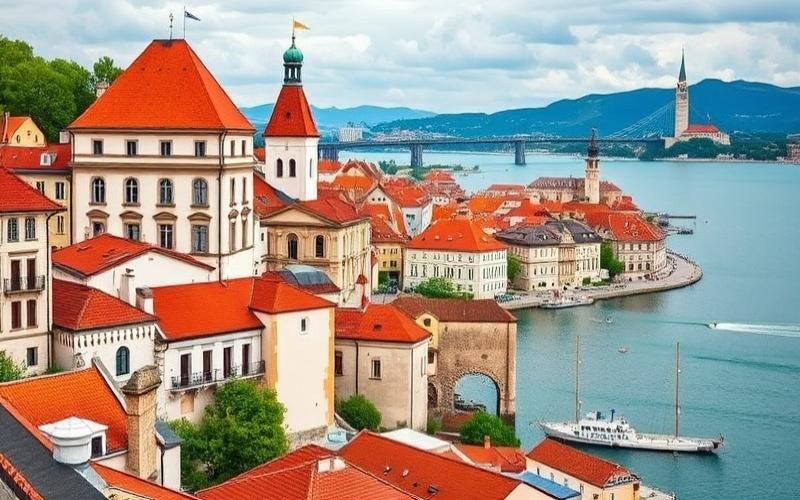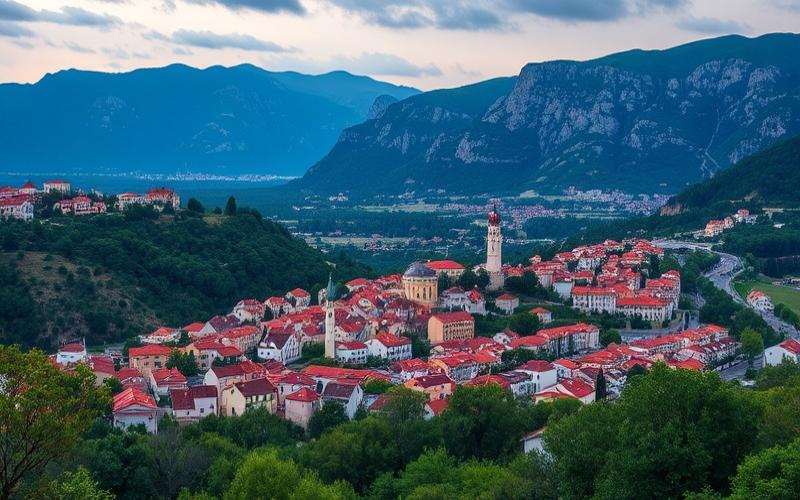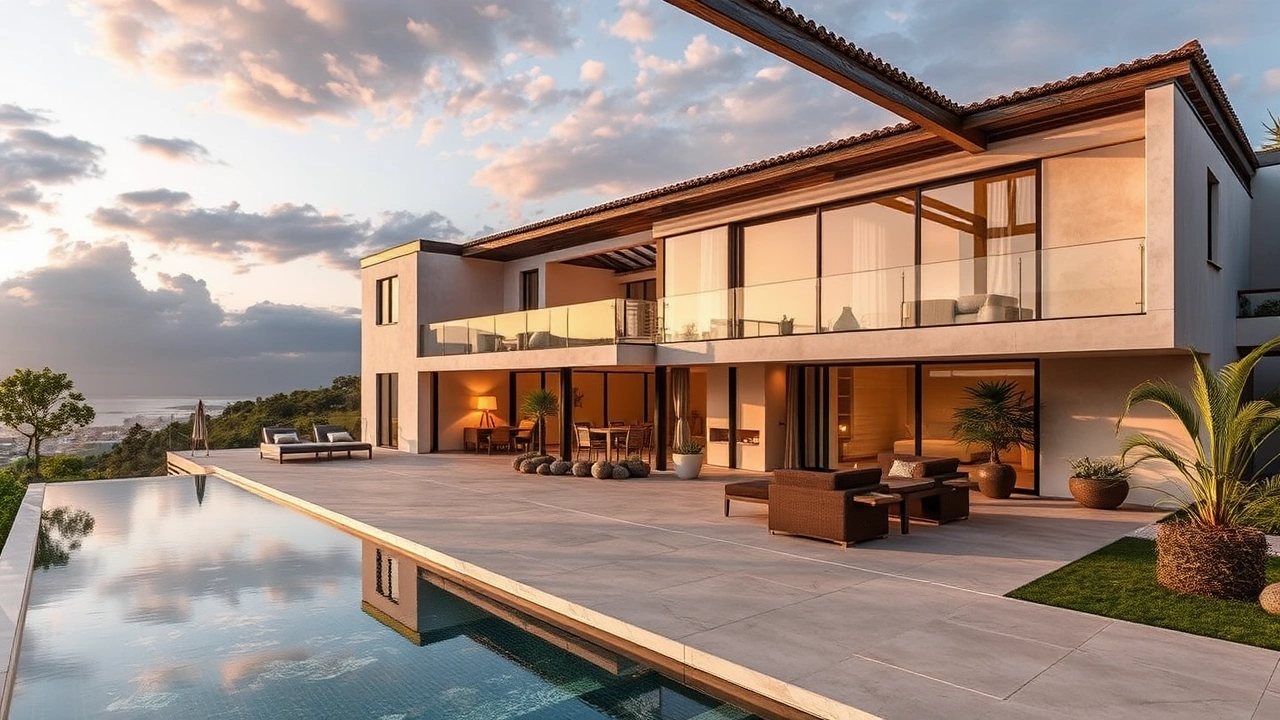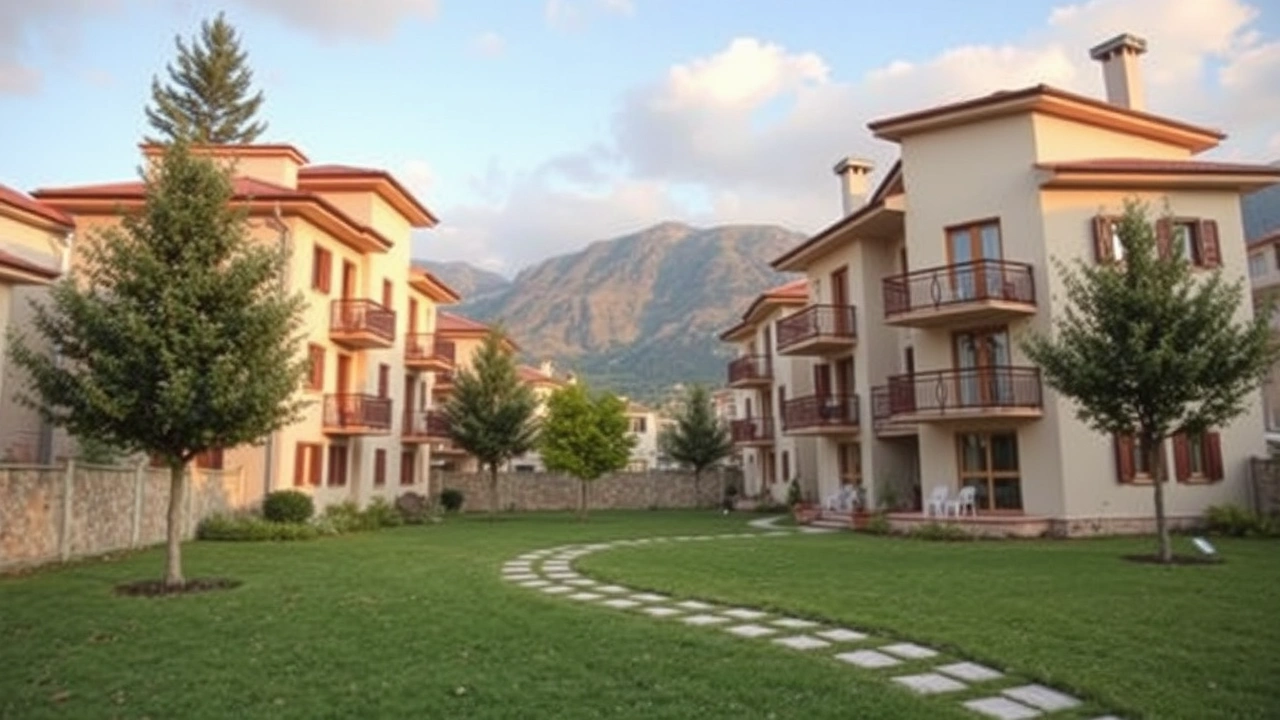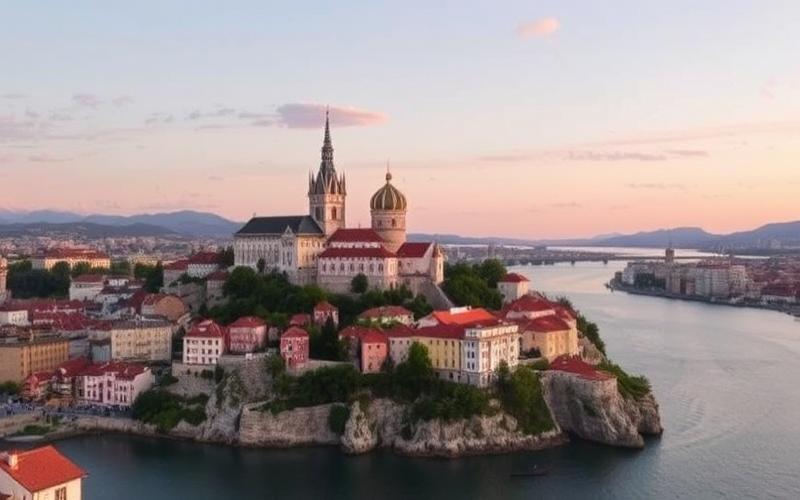
 Published on and written by Cyril Jarnias
Published on and written by Cyril Jarnias
Buying a hotel in Croatia may seem like an ambitious but extremely rewarding project. This picturesque country, with its stunning coastal landscapes and rich cultural heritage, attracts millions of tourists each year, offering a lucrative opportunity for investors seeking profitability in the hospitality sector.
However, embarking on such a project requires meticulous preparation and in-depth knowledge of local regulations. This guide provides a comprehensive checklist covering all essential aspects, from legal formalities to financial considerations, to effectively support you in your Croatian real estate acquisition process and maximize your chances of success in this promising market.
Croatian Hotel Market Overview
The current Croatian hotel market situation is characterized by strong growth in tourism demand. In April 2025, the country recorded 1.2 million tourist arrivals and 3.3 million overnight stays in commercial accommodations, representing an increase of 14.8% in arrivals and 18.4% in overnight stays compared to April 2024. Foreign tourists account for nearly 85.5% of overnight stays, confirming the international appeal of the Croatian market.
The hotel supply remains dominated by hotels (45.9% of overnight stays in April), followed by private accommodations and other types of commercial establishments. International chains are strengthening their presence while independent hotels benefit from the growing desire for personalized experiences.
Key trends influencing Croatia’s hotel sector:
- Focus on sustainability and integration of eco-friendly practices.
- Increased digitalization (online bookings, smart management).
- Development of off-season offerings to position Croatia as a year-round destination.
- Growing demand for affordable and segmented accommodations (budget/economy vs. luxury).
The most attractive regions for hotel investment are:
| Region | Main Characteristics |
|---|---|
| Adriatic Coast | High tourist concentration; Dubrovnik & Split leaders |
| Zagreb | Dynamic urban center with stable growth |
| Istria & Dalmatia | Popular coastal cities with investors |
The Adriatic Coast largely dominates the sector with over 27 million overnight stays in the first half, compared to only about one million in Zagreb or continental areas.
The main market players are:
- Valamar Riviera
- Plava Laguna
- Amadria Park
- Bluesun H&R
- Liburnia Riviera Hoteli
These companies share a large portion of the sector revenue estimated at $15.56 billion in 2024, with projected growth to approximately $19 billion by 2029, representing a compound annual growth rate exceeding 4%.
Recent economic performance:
In the first half of 2025:
- Overall increase in arrivals (+4%) and overnight stays (+4%)
- Foreign tourism revenue +€54 million in the first quarter
- Notable improvement in air traffic (+11%)
Specific regulations for the Croatian hotel industry:
- Strict compliance with national environmental standards (green certifications may be required).
- Enhanced legality on private rentals (“private households”) to improve tax transparency.
- Legislative framework favoring foreign investments but requiring compliance with European safety and quality standards.
Future growth forecasts:
The sector is expected to continue its growth thanks to:
- Sustained increase in international tourism.
- Regional diversification outside the summer season.
- Continuous development of modern hotel infrastructure.
Expected average annual rate: +4.56% between 2025 and 2033.
Summary table
| Indicator | Value / Trend |
|---|---|
| Market size (2024) | $15.56 billion |
| Market forecast (2029) | $19.45 billion |
| Main players | Valamar Riviera & Plava Laguna… |
| Leading area | Adriatic Coast |
| Foreign share/overnight stays | ~85% |
Summary list — Key points:
- Demand strongly driven by international clientele
- Segmented supply: chains VS independents/private
- Coastal regions = sector economic hearts
- Strong financial performance since the beginning of the year
Good to know:
The Croatian hotel market is expanding rapidly, supported by strong tourism demand, mainly along the Adriatic coast and in cities like Dubrovnik and Split. Current trends show increased investment in luxury hotels and eco-friendly accommodations, driven by an increasingly demanding international clientele. Global hotel chains, such as Hilton and Marriott, dominate the market, but independent hotels are starting to gain ground by offering unique experiences. Croatian regulations favor foreign investments but impose strict sustainability and energy standards, encouraging industry players to modernize their infrastructure. Despite challenges related to seasonality, hotel economic performance remains robust, with forecasts indicating continued growth, particularly driven by transportation infrastructure development and rising tourism.
Buying a Hotel in Croatia: Key Steps
Croatia attracts with its unique economic and tourism assets: an exceptional Adriatic coastline, over 1,244 islands, rich cultural heritage, and growing appeal for international travelers. The 2025 tourist season promises record attendance, with increasing demand for accommodations, particularly from German, Polish, French, and American visitors. Croatia also benefits from a mild climate conducive to year-round tourism, which encourages hotel investment and extends the tourist season.
Key steps for buying a hotel in Croatia:
- Search for the ideal location
- Prioritize tourist areas with high demand (Dubrovnik, Split, Zadar, Dalmatian islands, etc.).
- Analyze accessibility (proximity to airports, maritime connections, road infrastructure).
- Assess local competition and positioning of existing establishments.
- Examination and evaluation of the existing hotel
- Technical inspection: general building condition, compliance with safety standards, renovation needs.
- Financial analysis: past performance, occupancy rates, profitability.
- Verification of online reputation and customer satisfaction.
- Verification of legal and administrative aspects
- Check of land registry, property titles, and any debts or disputes.
- Compliance with local standards (safety, hygiene, accessibility).
- Obtaining operating licenses and specific authorizations for the hotel sector.
- Assessment of operational costs
- Fixed expenses: salaries, social charges, local taxes, energy.
- Variable expenses: supplies, maintenance, food service, entertainment.
- Potential renovation or upgrade costs.
| Expense category | Estimated range (€/month) |
|---|---|
| City center housing | 1,023 |
| Suburban housing | 766 |
| Hotel room (night) | 86 – 156 |
| Restaurant meal | 10 (per standard meal) |
| Fuel | 1.50 (per liter) |
Typical duration of administrative procedures
The entire process (audit, verifications, license acquisition) typically takes 3 to 6 months, depending on the complexity of the case and administrative responsiveness.
Financing advice for the purchase
- Use local or international bank financing: Croatian banks offer real estate loans to foreign investors, often requiring 30 to 40% personal contribution.
- Explore partnerships with hotel groups or institutional investors.
- Prepare a solid business plan to reassure financiers.
Importance of collaborating with local experts
- Real estate agents: to access off-market opportunities and negotiate prices.
- Specialized lawyers: to secure the transaction, verify document compliance, avoid administrative pitfalls.
- Hotel consultants: to assess the establishment’s potential and support repositioning strategy.
Government programs or incentives
Croatia occasionally offers incentives for tourism investments: temporary tax exemptions, renovation subsidies, or VAT reduction on certain works. It’s essential to consult current programs at the time of purchase.
Practical advice for management and development
- Adapt offerings to new expectations (wellness stays, digital nomads, sustainable tourism).
- Invest in staff training and service quality.
- Develop local partnerships (producers, travel agencies, event organizers).
- Implement digital management: online booking, customer review management, operational management tools.
Compliance with local regulations
- Strictly comply with safety, accessibility, and hygiene standards.
- Ensure validity of operating licenses and declarations to tourism authorities.
- Ensure proper income declaration and compliance with local tax obligations.
Recent success examples
The 2025 opening of Hyatt Regency Zadar illustrates the growing interest of major international groups in Croatia. This project, led by Doğuş Group, is part of a dynamic to enhance the luxury hotel offering and demonstrates the profitability of investments on the Adriatic coast.
Establishments such as Sun Gardens Dubrovnik and Hotel Excelsior Dubrovnik also testify to the success of strategies combining renovation, service excellence, and luxury positioning.
Buying a hotel in Croatia represents a solid opportunity, provided you surround yourself with local experts, properly anticipate administrative procedures, and meet the demands of an expanding tourism market.
Good to know:
Croatia, with its picturesque landscapes and constant influx of tourists, offers lucrative opportunities for hotel purchases. To buy a hotel, start by identifying a strategic location, often near popular tourist sites, and examine the existing establishment in detail. Essential steps also include verifying legal and administrative obligations, compliance with local regulations, and careful assessment of operational costs. Administrative procedures can take between three and six months depending on the complexity of the case. Financing can be facilitated by Croatian incentive programs for foreign investors. Collaborating with local professionals, such as real estate agents and lawyers, is crucial to navigate the process and maximize your opportunities. Once the hotel is acquired, investing in its management and development, while respecting local tourism standards, is essential; recently, investments in hotels on the Adriatic coast have demonstrated their profitability within just a few years.
Due Diligence for Hotel Purchase in Croatia
Crucial due diligence steps for hotel purchase in Croatia:
- Assessment of legal and compliance aspects:
- Verification that the hotel complies with all local regulations (urban planning, safety, taxation, health standards).
- Analysis of current operational contracts: franchises, management, suppliers, commercial leases, financial agreements.
- Identification of clauses potentially affected by the transaction (intuitu personae, ownership changes).
- Validation of absence of ongoing disputes or litigation risks.
- Verification of property titles:
- Check of title validity, absence of mortgages or easements.
- Analysis of ownership chain to detect any defects or irregularities.
- Verification of registration document compliance and property-related authorizations.
- Analysis of existing contracts:
- Detailed review of employment contracts, collective agreements, employee rights, potential labor disputes.
- Review of leases, duration, termination conditions, tenant obligations.
- Analysis of maintenance, subcontracting, and brand licensing contracts.
- Financial review:
- Analysis of balance sheets, income statements, audit reports, and tax declarations.
- Verification of consistency between declared revenues, cash flows, and operational reality.
- Assessment of operating expenses compared to standard hotel industry ratios.
- Study of financial projections and identification of investment or cash flow needs.
- Market and tourism potential analysis:
- Evaluation of hotel location, accessibility, tourist attractiveness of the region.
- Comparative analysis with competing hotels (occupancy rates, average prices, seasonality).
- Study of local tourism trends, growth potential, and risks related to economic conditions.
- Inspection of infrastructure and facilities:
- Technical audit of buildings, equipment, compliance with safety and accessibility standards.
- Assessment of renovation or standardization needs.
- Identification of potential structural problems or obsolescence.
- Verification of licenses and permits:
- Check of validity of all necessary authorizations for hotel operation (operating license, building permit, health authorizations, fire safety).
- Verification of absence of withdrawal procedures or administrative non-compliance.
Summary table of main due diligence aspects:
| Verification area | Main objective | Essential checkpoints |
|---|---|---|
| Legal & compliance | Legal security, regulatory compliance | Contracts, disputes, standards compliance |
| Property | Transaction security | Titles, mortgages, ownership chain |
| Financial | Viability and profitability | Balance sheets, cash flows, industry ratios |
| Market | Growth potential | Competitive analysis, regional attractiveness |
| Infrastructure | Technical risk assessment | Technical audit, equipment condition |
| Licenses & permits | Legal operation guarantee | Authorization validity |
Practical advice:
- Consult local experts (lawyers, notaries, accountants specialized in Croatian law and local taxation) to validate each step.
- Rely on reputable real estate agencies and hotel industry professionals with Croatian market experience.
- Engage independent technical auditors for infrastructure evaluation.
Why these steps are essential:
- They help reduce investment risks by identifying anomalies or non-compliance before the transaction.
- They guarantee the legal security of the acquisition and operational sustainability.
- They provide a clear view of actual profitability and the hotel’s development potential.
- They avoid unexpected costs related to hidden defects or unmet regulatory obligations.
- They facilitate obtaining bank financing, as lending institutions typically require comprehensive due diligence.
A rigorous due diligence process is the guarantee of a successful and sustainable hotel investment in Croatia.
Good to know:
To successfully conduct due diligence when buying a hotel in Croatia, it’s crucial to start by assessing legal and compliance aspects, such as verifying property titles and analyzing current contracts, including leases and employment contracts. Meticulously examine the hotel’s finances, scrutinizing balance sheets, cash flow projections, and conduct market analysis to understand the region’s tourism potential. Don’t neglect infrastructure inspections and verify that all required licenses and permits for operation are valid. Consultation with local experts, including lawyers and accountants familiar with the Croatian market, is essential to navigate the country’s legal and financial specifics. These steps are indispensable for minimizing investment risks and ensuring a successful transaction, guaranteeing that all facets of the acquisition have been rigorously examined.
Croatian Tourism Statistics and Trends
Number of visitors and recent trends
- In 2024, Croatia welcomed approximately 21.35 million tourist arrivals and recorded over 108.7 million overnight stays.
- The historical record was reached in December 2023 with nearly 16.85 million monthly arrivals.
- During the first 10 months of 2024, the country counted 17.8 million foreign tourists, an increase of 2.7% compared to the previous year.
- However, in the first quarter of 2025, there was a 16.7% decrease in foreign tourist overnight stays, mainly due to price increases following euro adoption.
Main tourist countries of origin
| Rank | Country of origin | Number of arrivals (2024) |
|---|---|---|
| 1 | Germany | Very majority |
| 2 | Slovenia | Significant |
| 3 | Austria | Significant |
| 4 | Italy | Significant |
| 5 | Poland | Significant |
| 6 | Czech Republic | Significant |
| 7 | United Kingdom | Significant |
| 8 | Hungary | Significant |
| 9 | Slovakia | Significant |
| 10 | France | 607,227 (+5% vs 2023) |
Peak attendance periods
- The tourist peak concentrates during the summer period, from June to September, with notable saturation in July and August.
- Dubrovnik, Cavtat, and Mljet are the most sought-after destinations during summer.
- To limit overtourism, measures encourage off-season tourism.
Tourism impact on local economy
- Tourism generates approximately €15.2 billion in revenue in 2024.
- The sector represents about 20% of annual transactions on the Zagreb Stock Exchange, being the most important sector in number of listed shares and the third in market capitalization.
- Strong tourism demand supports employment and investment, particularly in hospitality and infrastructure.
- Hotel supply and private home rentals remain crucial, even though inflation pushes some tourists to prefer apartments and self-catering over restaurants.
Outlook and forecasts
- Despite recent decline linked to price increases (+30% after euro adoption), Croatia remains a sought-after destination.
- Authorities focus on sustainable tourism development and flow regulation (quotas, increased tourist tax).
- Infrastructure expansion, particularly the highway network, facilitates access to coastal regions and favors arrival of tourists by car or bus (over 80% of visitors).
- New destinations are emerging (for example, Mljet) and diversification of offerings (green tourism, off-season) is encouraged to limit saturation of historical sites.
- Medium-term, the Croatian tourism sector should remain an economic pillar, provided it adapts its model to challenges of overtourism and rising cost of living.
Tourism remains an essential engine of the Croatian economy, but must adapt to new realities: price increases, summer saturation, and necessity for diversification of offerings and reception periods.
Good to know:
In recent years, Croatia has welcomed approximately 20 million annual visitors, with Germany, Italy, and Slovenia among the main tourist countries of origin. The months from June to September experience peak attendance, favored by pleasant climate and summer festivals. In 2022, tourism revenue represented over 20% of the country’s GDP, highlighting the crucial importance of the hotel sector in economic dynamism. Recent developments show diversification of tourist destinations beyond the coasts, as well as growing interest in rural and cultural tourism. With constant infrastructure improvement and emergence of new destinations like the Dalmatian hinterland, forecasts indicate continued sector growth, offering promising hotel investment opportunities for coming years.
Disclaimer: The information provided on this website is for informational purposes only and does not constitute financial, legal, or professional advice. We encourage you to consult qualified experts before making any investment, real estate, or expatriation decisions. Although we strive to maintain up-to-date and accurate information, we do not guarantee the completeness, accuracy, or timeliness of the proposed content. As investment and expatriation involve risks, we disclaim any liability for potential losses or damages arising from the use of this site. Your use of this site confirms your acceptance of these terms and your understanding of the associated risks.

